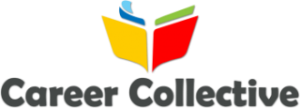For most of us, when we finish school it’s time to either start studying or to start working. The problem for many of us though, is that we don’t really know what we want to do. As much as they try to help you with career guidance at school, it always seems to be easier to work out what you don’t want to do as opposed to what you do want to do. That’s a good start, but the reality is you cannot end up with a career by eliminating all the options one by one. So here is our helpful guide to help steer you in a direction without forcing you to commit to one thing from the outset.

Look at the law
It probably goes without saying that careers in legal are very varied and able to cater to a wide range of interests and skills. Law firms like Matthew Glossop & Associates are really good at this kind of thing and should be at the fore of your agenda when penning down ideas of who to partner with. That’s just one side of it. Sure, there is plenty of space for that kind of thing if you are quick on your feet and have the oratory skills required. But there are many other facets to the legal game. Contacts, conveyancing, corporate, constitutional. If your marks are not up to it you good explore paralegal options as well. And once all these areas have been explored you could specialize in specific areas or types of law. The point is, with a basic grounding in law you haven’t specialized too much and there are still lots of options available to refine your choice as you get older and wiser and gather more information.
Journalism
The prerequisite here is the ability to write, but thereafter the world really is your oyster. The beauty about a career in journalism is that it allows you to apply your skills in whatever area you chose. If, for example travel is your passion, you can start exploring a career by writing about your travels. You can do it on your own blog to develop a portfolio and to craft your skills. But you can write about anything. You could be a medical writer or a news reporter or a political analyst, or sport or finance. The key is to start writing, make contacts and grow from there. If you were really good you could end up with a situation where your freelance earnings were able to pay for your tuition fees once you decided on the way you wanted to proceed.
Learn a trade
For so many people the pressure to go to University is inexorable. If you can, resist it. Honestly assess what skills you have or don’t have and where you see yourself working for, potentially the rest or your life. If office based work, suits and stuffy meetings are not your bag, then look at getting education in trade. Electricians and plumbers earn very well and once equipped with the skills to perform the work, they are great platforms from which to explore you entrepreneurial skills. Spending a few weeks apprenticing in different fields should quickly help you home in on an area that works best for you and thereafter you can look to acquire the necessary qualifications.




